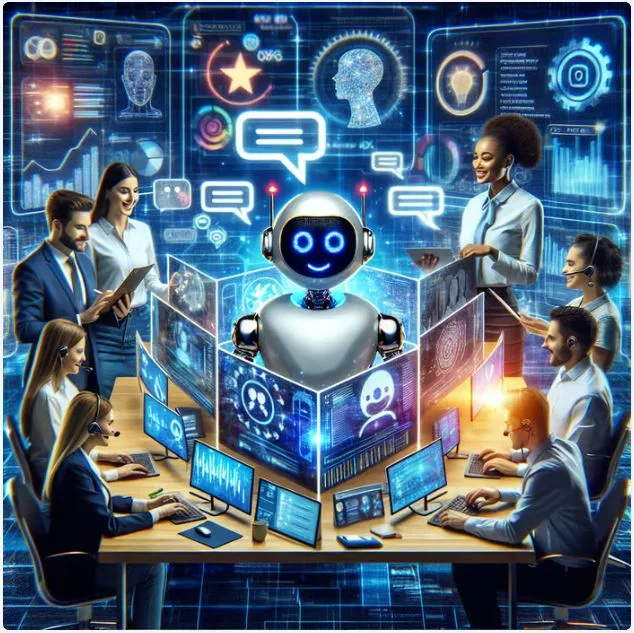Unveiling the Transformational Power of Artificial Intelligence: Beyond the Hype
In the digital age, where innovation is the cornerstone of progress, one technological marvel stands out amidst the cacophony of advancements: Artificial Intelligence (AI). From revolutionizing industries to enhancing everyday experiences, the importance of AI technology cannot be overstated. Yet, beneath the surface of its ubiquity lies a profound narrative of transformation, reshaping the very fabric of human existence.
At its core, AI embodies the convergence of human ingenuity and computational prowess. It encompasses a spectrum of capabilities, from machine learning algorithms that decipher complex patterns to neural networks mimicking the human brain's synaptic connections. However, its significance extends far beyond mere automation and efficiency gains.
One of AI's most profound impacts is its ability to augment human potential. By leveraging AI-powered tools, individuals can transcend the limitations of their cognitive abilities, enabling feats once relegated to the realm of science fiction. Whether it's diagnosing diseases with unprecedented accuracy or predicting natural disasters before they strike, AI empowers humanity to tackle challenges with newfound precision and foresight.
Furthermore, AI serves as a catalyst for innovation across diverse domains. In healthcare, it enables personalized treatment regimens tailored to individual genetic profiles, ushering in an era of precision medicine. In finance, AI-driven algorithms analyze market trends in real-time, optimizing investment strategies and mitigating risks. In education, AI-powered tutors adapt learning materials to cater to each student's unique learning style, fostering a more inclusive and effective educational landscape.
Beyond its tangible applications, AI fosters a paradigm shift in how we perceive and interact with technology. Through natural language processing and computer vision, AI interfaces bridge the gap between humans and machines, rendering interactions more intuitive and seamless. Voice-activated assistants, autonomous vehicles, and smart home devices epitomize this convergence, embedding AI into the fabric of everyday life.
However, amidst the awe-inspiring potential of AI, ethical considerations loom large. As AI systems grow increasingly autonomous, questions of accountability, bias, and transparency come to the fore. Striking a balance between innovation and ethical integrity is paramount to harnessing AI's transformative power responsibly.
Moreover, concerns surrounding job displacement and societal inequality underscore the need for proactive measures to mitigate AI's disruptive effects. By investing in reskilling initiatives and fostering an inclusive digital ecosystem, societies can ensure that the benefits of AI are equitably distributed, fostering economic prosperity and social cohesion.
In conclusion, the importance of AI technology transcends its technical intricacies, embodying a profound shift in how we perceive and interact with the world around us. From enhancing human potential to driving innovation across industries, AI holds the promise of a future defined by unprecedented possibilities. However, realizing this vision requires a concerted effort to navigate the ethical, societal, and economic implications of AI's ascent. Only by embracing AI with foresight and responsibility can we unlock its full transformative potential and usher in a future where human ingenuity knows no bounds.






0 Comments